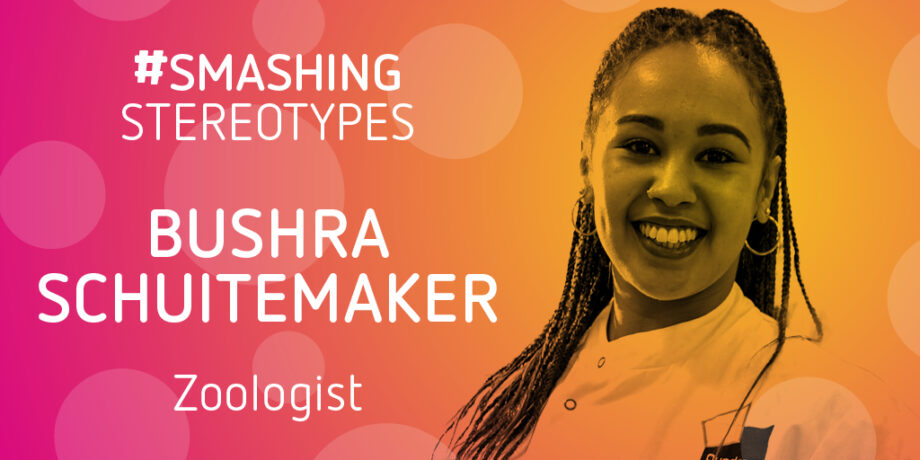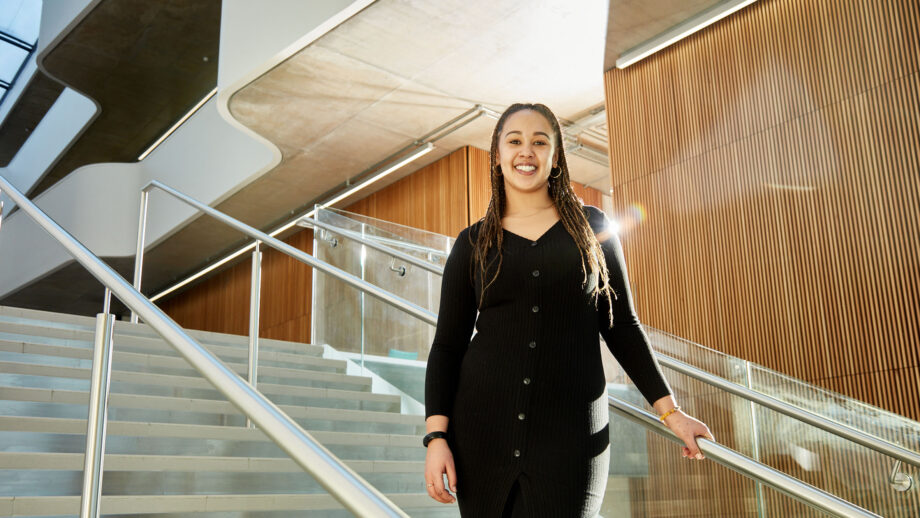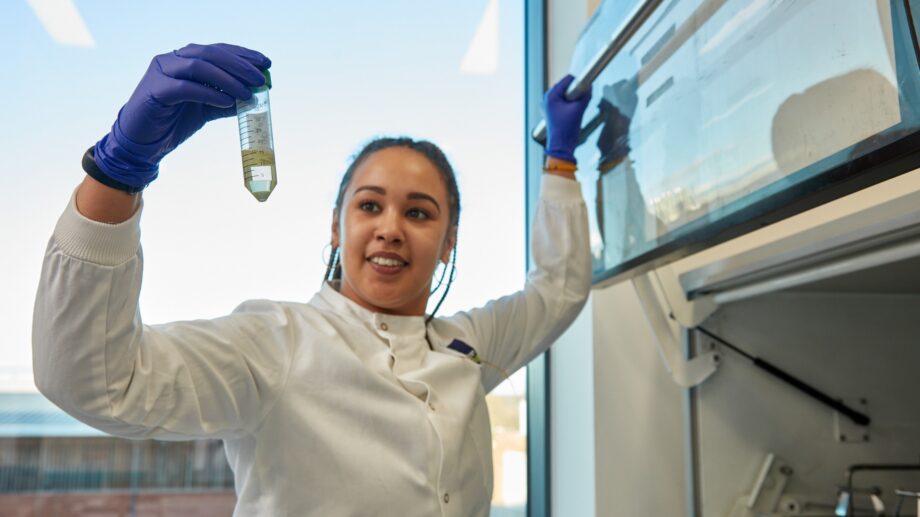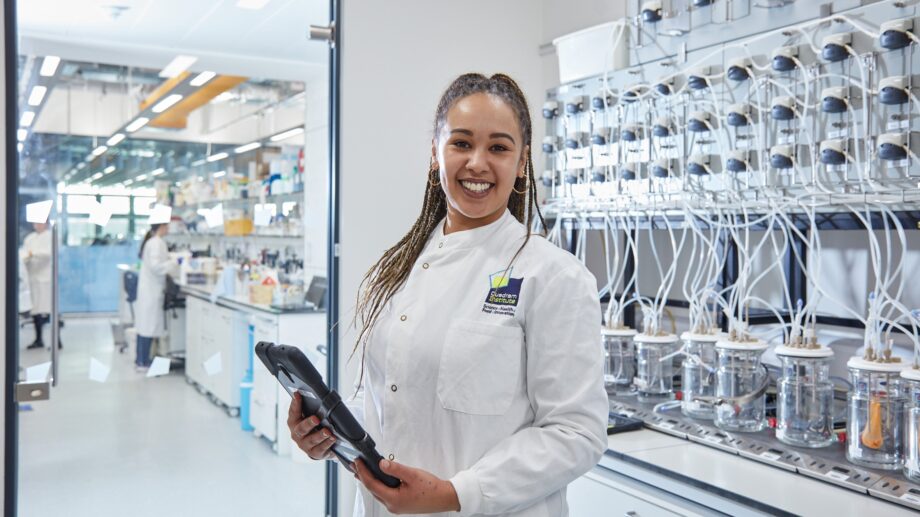
Bushra Schuitemaker
Zoologist, Quadram Institute
How a pet chicken sparked a passion for poultry science
After studying Zoology at Anglia Ruskin University, Bushra worked as a research scientist before starting her PhD, focused on poultry health and welfare at the Quadram Institute, Norwich. Currently in her final year of study, Bushra is investigating the gut microbiome in chickens to find new ways of monitoring their health and productivity.
Bushra has also helped initiate the Racial and Ethnic Equality and Diversity (REED) network for the British Ecological Society.
I’ve always loved animals, they are my absolute passion.
As a child, the first pet I ever had was a chicken. I had a little incubator on my mum’s kitchen counter, much to her disgust. I started with six little chicks, and I would build them obstacle courses in my garden and invite friends over from school: “Do you want to come hang out with my chickens?”. I would even watch TV with them zipped up in my hoodie. Again, much to my mum’s disgust…but there was no stopping me, I was a chicken enthusiast.
After my undergraduate Zoology degree, I worked in science for a few years, first for the Wellcome Sanger Institute as an animal technician, then for Cancer Research UK. I really enjoy lab work, but ultimately I knew that my passion was animals and I wanted to return to animal research. So when this PhD opportunity came up at the Quadram Institute looking at improving poultry health and welfare, it just brought me straight back to my childhood. It felt like destiny!

It hasn’t been easy getting here. I really enjoyed university because I love being practical and hands-on. However, I found that I was not performing as well when it came to exams and essays. I was great at talking through everything and I understood it when I spoke to my lecturers, but I just couldn’t seem to get that onto paper.
In my final year of university, one of my lecturers asked if I wanted to go for a dyslexia and dyspraxia assessment. It turned out that I had both.
The diagnosis made a huge difference: I stopped calling myself stupid, I stopped assuming that I wasn’t intelligent, and I realised that I just needed to learn differently.
I think a lot of people assume that if you’re not excellent at writing, or if you’re neurodiverse in some way, science, academia, or a PhD isn’t for you. But I have realised that’s not the case at all. Being an enthusiastic person, being hard working, caring about science, and being resilient and passionate are far more important skills than being able to memorise a list of names and repeat them under exam conditions.

It’s not the only challenge I’ve faced. Historically, ecology and zoology have been dominated by white men and even now, people are often surprised to learn that I work in those fields. I was the only person of colour on my undergraduate Zoology course and now I do a lot of volunteering, and I’m often the only woman and always the only person of colour in the room.
To help smash this stereotype, I helped to initiate the Racial and Ethnic Equality and Diversity network for the British Ecological Society in 2020. Through the network, we have now connected more than 90 people from underrepresented racial and ethnic minorities who work in different ecological sectors around the world. I think it gives us a lot of power to realise that we’re not alone and that others have faced the same challenges.

I think science ultimately is becoming more accessible for people who are neurodiverse and for people from different racial and ethnic minorities. People are starting to realise, especially with the current climate crisis, that environmental justice is social justice and there is real value in diversity in those industries in order for us to tackle some of these global issues.
We’ve still got work to do, and we’ve still got a long way to go. But I am starting to see a change.